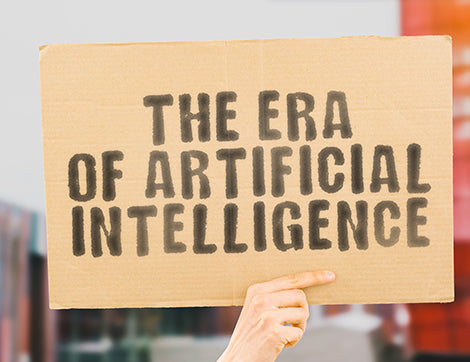Artificial intelligence (AI) has permeated every sphere of our lives, including the field of education. It is not an exaggeration to say that AI is poised to revolutionise education as we know it, including vocational training. Here's how vocational education institutes can prepare to lead in the AI era.
Understand the Impact of AI on Skills Development
Unfortunately, the first source could not be parsed, but it's essential to note that AI impacts skills development. AI can automate repetitive tasks, free up time for more complex problem-solving, and provide personalised learning experiences. These capabilities will impact the type and level of skills needed in the workforce.
Leverage AI in Teaching and Learning
Institutions like the National Institute of Education, Nanyang Technological University, Singapore (NIE NTU, Singapore) have made strides to transform teaching and learning using AI. The AI@NIE initiative serves as a model for vocational education institutes, demonstrating the innovative and ethical applications of AI in education.
Align AI Adoption with Human Capacity Enhancement
According to UNESCO's recommendations, the use of AI technologies in education should focus on enhancing human potential and defending human rights. Vocational education institutes should ensure their AI strategies are not only effective but also ethical and supportive of human-machine collaboration.
Review the Current State of AI in Education
It's important to stay informed about the latest AI technologies and applications in the education sector. Engaging with research papers and reports can help vocational education institutes understand and prepare for the future directions of AI in education.
Implement AI-Driven Interventions
In response to the fourth industrial revolution and its associated demand for transformative technical skills, AI-driven interventions in vocational education are becoming increasingly necessary. By integrating AI into their curriculum, vocational education institutes can ensure the immediate and sustainable employability of their graduates.
Develop Responsible AI Policies
The development of responsible AI policies is crucial to ensuring that AI technologies are used ethically and effectively in education. Such policies can guide the design and implementation of AI in vocational education, ensuring that it benefits all students.
Engage in Multistakeholder Dialogue
UNESCO has presented a roadmap on generative AI and education, which includes open multistakeholder dialogue. Vocational education institutes should engage in these dialogues to learn from and contribute to the global conversation on AI in education.
Prepare for AI-Enabled Pedagogical Adaptation
Research on AI and deep learning (DL) techniques in teaching and learning has evolved significantly over the past two decades. Vocational education institutes should remain adaptable to these evolving AI-enabled pedagogical practices to stay at the forefront of education.
Collaborate with AI Leaders
Collaboration with AI leaders, like Microsoft, can offer valuable insights and resources for implementing AI in education. Such partnerships can help vocational education institutes leverage AI to enhance their teaching and learning processes.
In conclusion, AI presents a transformative opportunity for vocational education. By understanding its impact, leveraging its potential, implementing responsible AI policies, and fostering collaborative partnerships, vocational education institutes can prepare to lead in the era of AI.


































